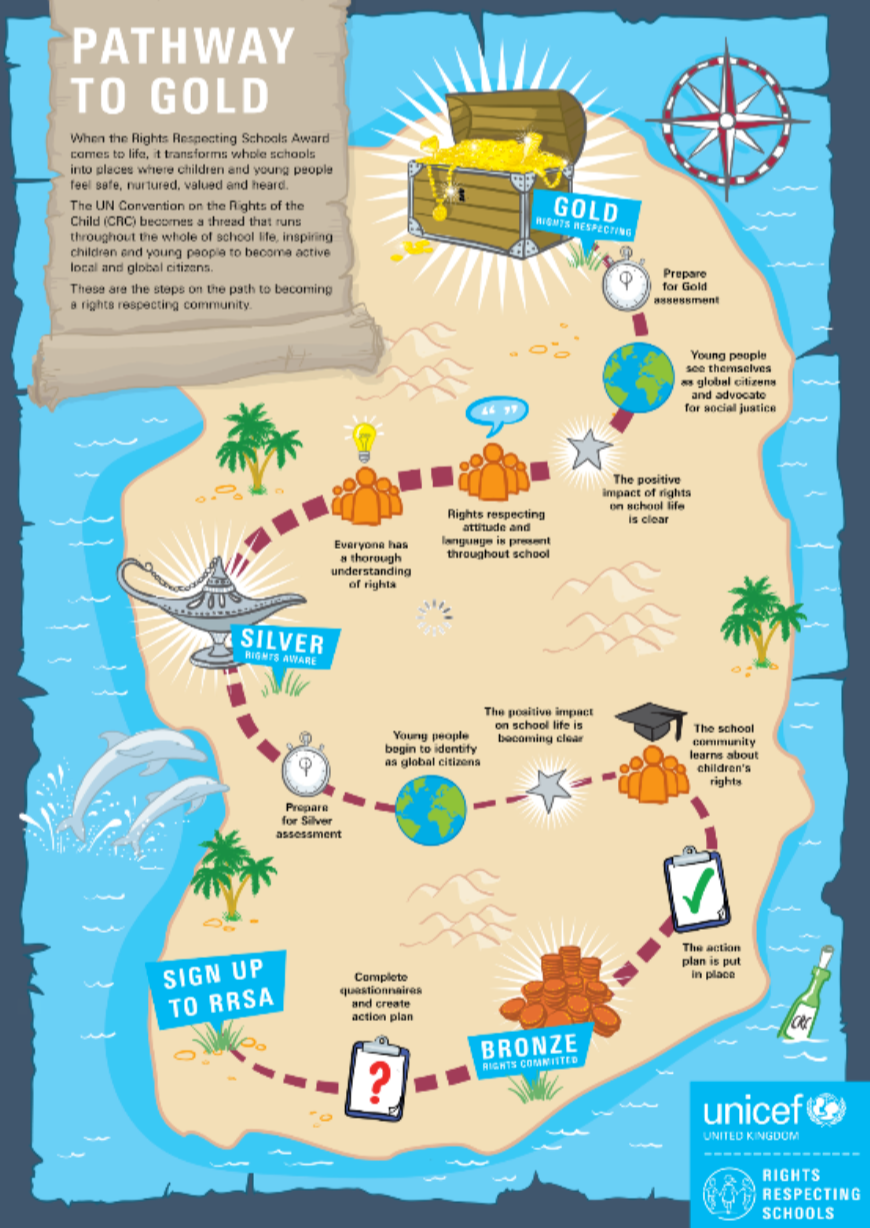Rights Respecting School Award

Schools involved in the Rights Respecting Schools Award work towards the recognition that they have embedded children and young people’s rights in their school’s practice and ethos.
Our Journey

Schools are required to implement three evidence-based strands that cover the leadership of the school, knowledge and understanding of children’s rights, ethos and relationships and the empowerment of children and young people.
Strand A Bronze – Pupils learning about the rights.
Strand B Silver – Pupils learning through the rights during lessons.
Strand C Gold – Pupils campaigning for the rights at a local, national and global level.
How do we promote and embed children’s knowledge and understanding of their rights?
At Broke Hall, all stakeholders of the school are involved. Although there is a steering committee, it is very much a whole-school focus that requires the commitment of everyone to ensure the ethos and Rights are truly embedded. For example:
- Pupils – Child led. They form the main part of the steering group/committee
- Rights Respecting School Lead to champion, promote and support children’s rights.
- SLT – Champion, promote and support children’s rights.
- Teachers – Provide learning opportunities. Incorporate children’s rights on displays and in assemblies.
- Headteacher – Champion and lead children’s rights through the ethos of the school.
- Governors – Incorporate children’s rights in school policies. To promote and support children’s rights in school. Link governor.
- Support staff – Link and promote children’s rights.
- School community/parents and carers – Provide a platform for parental engagement and opportunities to learn about and support their children’s rights.
How are the Rights covered and promoted at Broke Hall?
The rights of children are covered in a variety of different ways:
- Curriculum – links explicitly made in PHSE, Guided Reading, French.
- Children’s rights are displayed in every classroom and on other displays throughout the school.
- Weekly assemblies
- Whole school days/weeks
- After-school club opportunities.
- Pupil representing bodies – RRSA steering group/committee, School Council, Eco Council, Playground Buddies.
- Children’s surveys
- Charity events.
- Newsletters.
